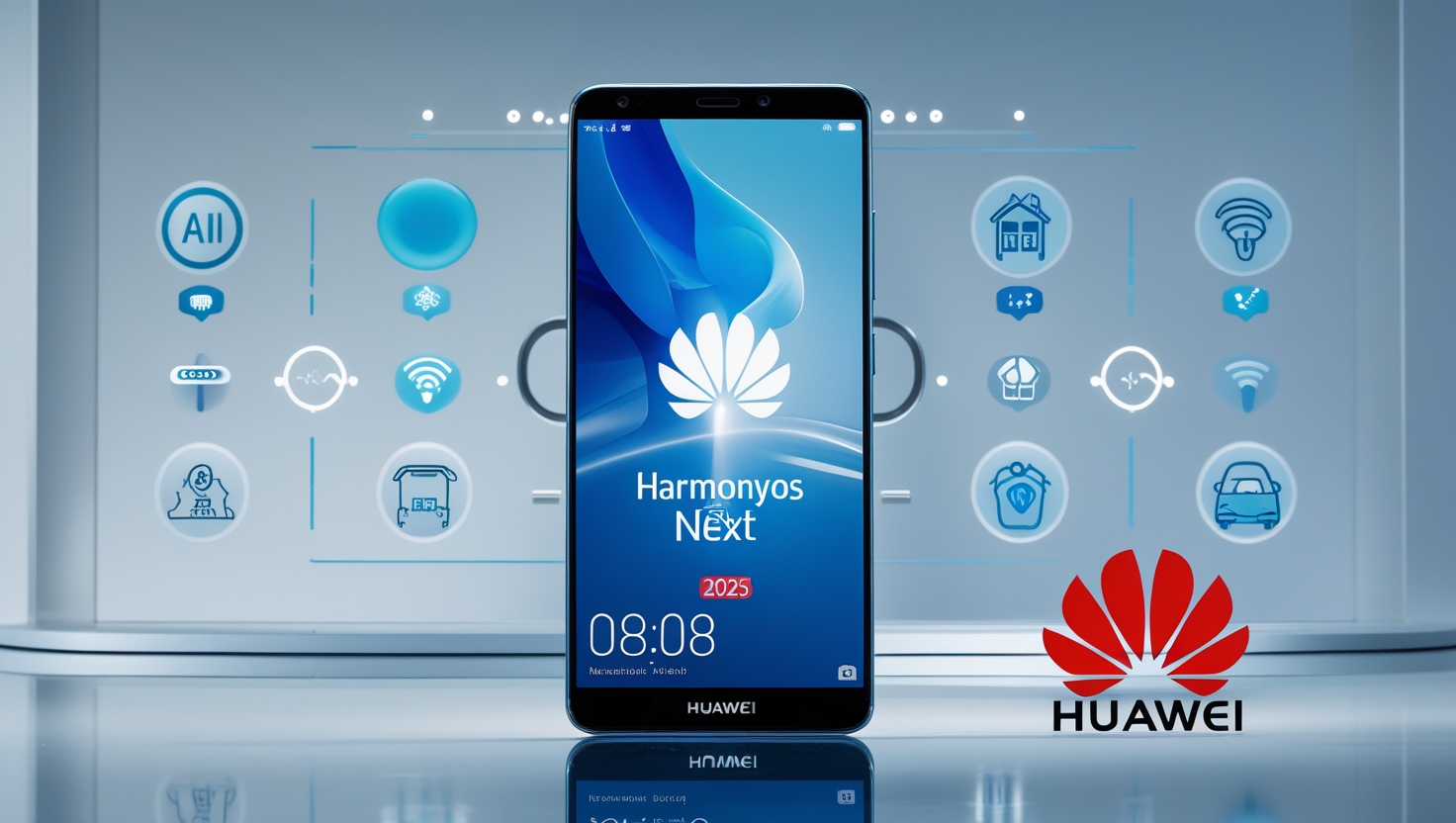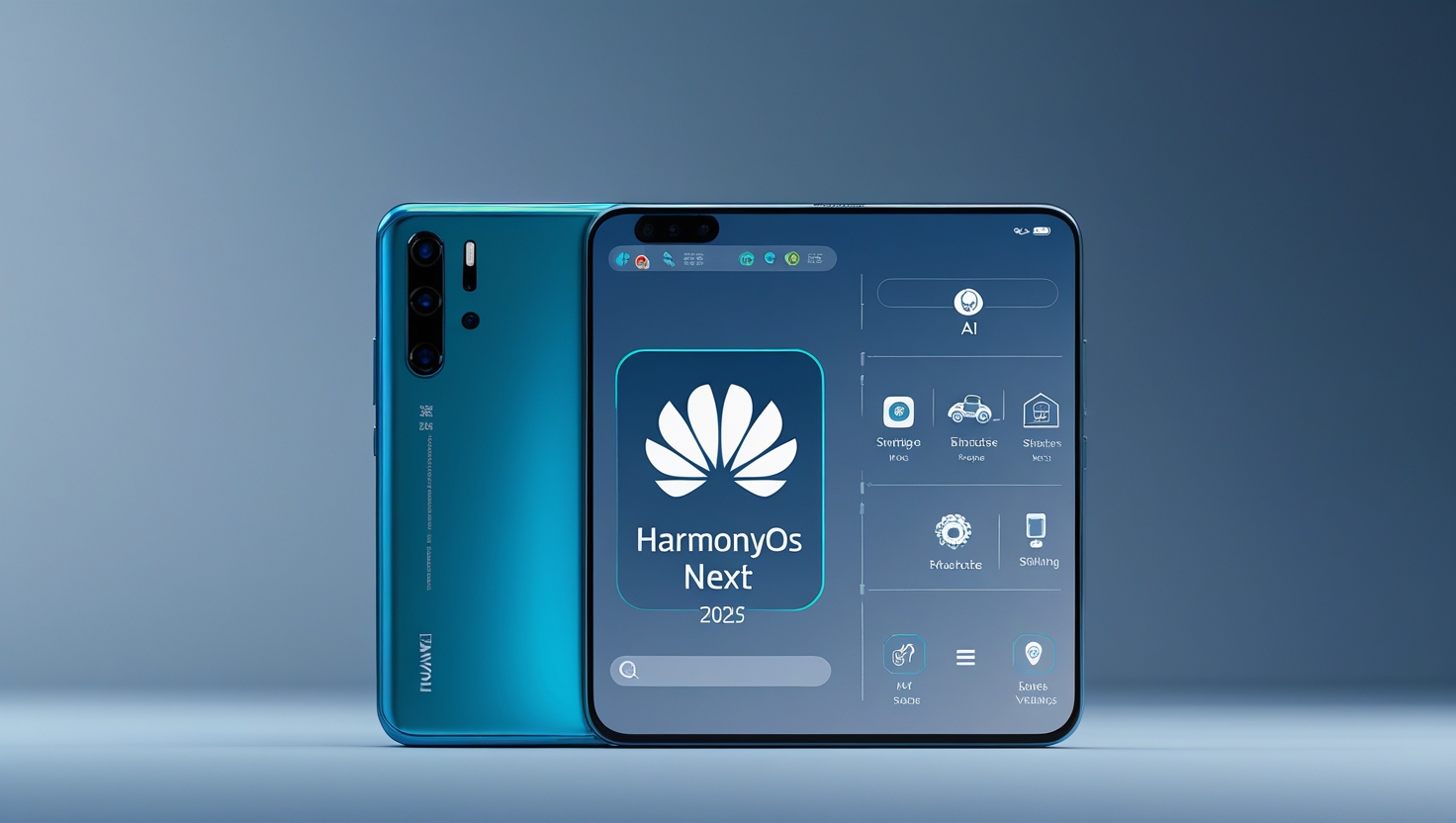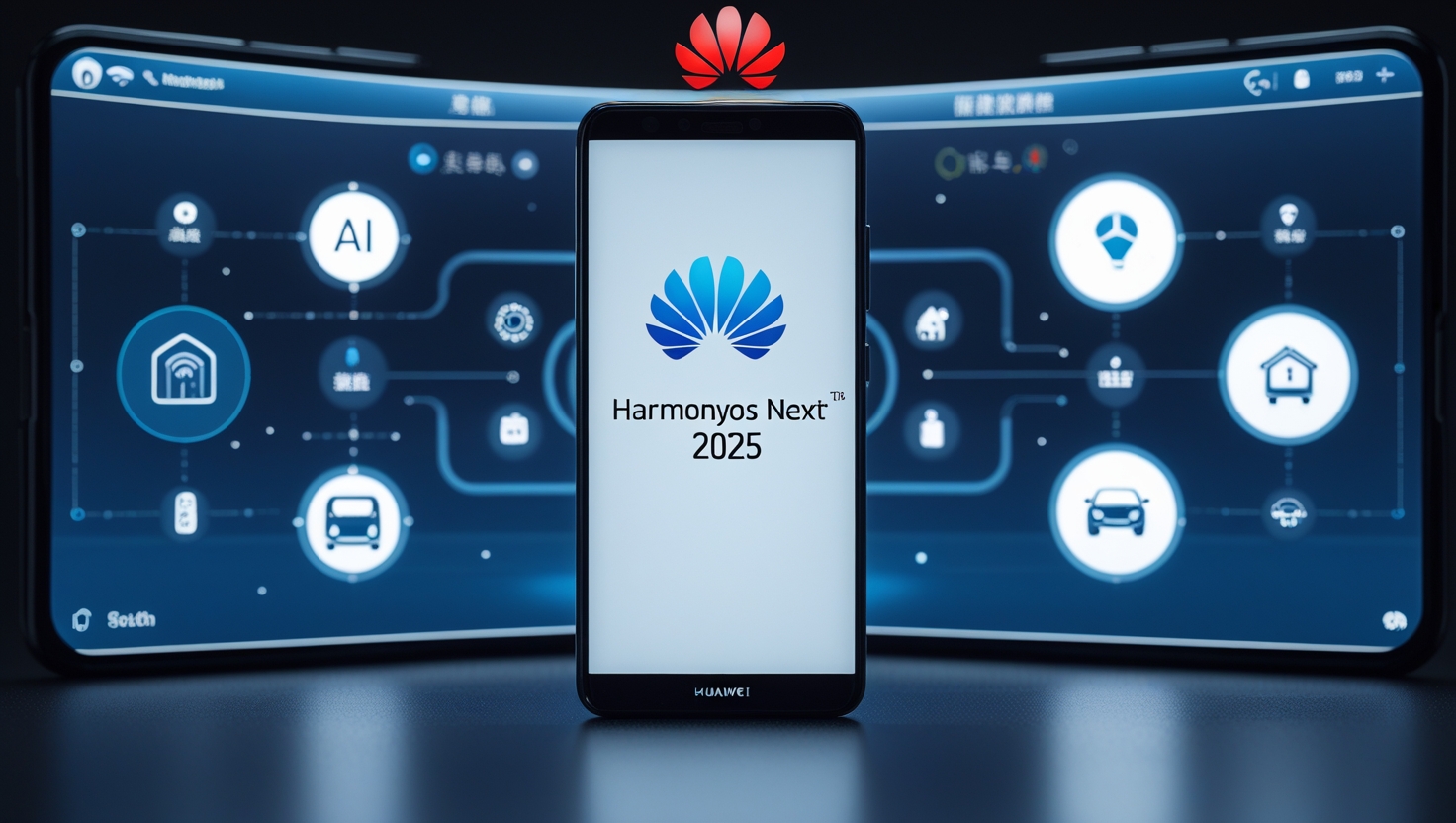- Introduction
- What is HarmonyOS?
- Is HarmonyOS NEXT based on Android?
- Is HarmonyOS better than Android?
- Is Huawei replacing Android?
- Can HarmonyOS Run Android Apps?
- Key Features of HarmonyOS NEXT
- HarmonyOS vs Android
- Will Huawei get Google again?
- HarmonyOS NEXT supported devices.
- Huawei HarmonyOS phone list
- Huawei HarmonyOS price
- HarmonyOS download
- HarmonyOS latest version
- Challenges and Outlook
- Conclusion
Introduction

HarmonyOS, introduced by Huawei in 2019, is a distributed operating system powering smartphones, wearables, smart home appliances, and even electric vehicles (EVs). Built on the “1 + 8 + N” strategy, where 1 represents smartphones, 8 includes Huawei devices like tablets and watches, and N stands for third-party innovative products- a seamless, interconnected ecosystem. In 2024, Huawei launched HarmonyOS NEXT, a pivotal milestone that signified a complete departure from Android and demonstrated Huawei’s push for technological self-reliance amid increasing global trade tensions.
This article provides a comprehensive overview of HarmonyOS NEXT as of May 2025. We’ll explore its origins, features, app compatibility, global strategy, and challenges, helping you understand whether Huawei’s independent OS is the future of mobile computing.
What is HarmonyOS?
HarmonyOS is a next-gen operating system supporting diverse devices, including smartphones, tablets, wearables, and cars. It was designed to deliver a unified user experience across all smart devices. Earlier versions (1 to 4) were based on Android’s Open Source Project (AOSP) and the Linux kernel, enabling Android app compatibility through sideloading.
With the release of HarmonyOS NEXT (Version 5) in August 2024 and its full rollout by 2025, Huawei transitioned to a microkernel-based OS using the HongMeng Kernel, eliminating all Android dependencies.
Is HarmonyOS NEXT based on Android?

No longer. Here’s a breakdown:
- Versions 1 to 4 (2019–2024): Android AOSP + Linux kernel. Supported sideloaded Android apps.
- HarmonyOS NEXT (Version 5): This operating system was built from scratch using a proprietary microkernel and is not Android-based. Huawei claims a 30% performance boost and 10.7% improved kernel efficiency over Linux.
Huawei describes this as a “pure blood” operating system—free of U.S. tech influence.
Is HarmonyOS better than Android?
Let’s break it down with a direct comparison:
| Feature | HarmonyOS NEXT | Android |
| Kernel | Microkernel (HongMeng) | Monolithic (Linux) |
| Performance | +30% | Baseline |
| Security | Capability-based, ATM | Permissions-based |
| UI | ArkUI + Celia | Material Design + Assistant |
| Ecosystem | Growing native apps | Mature global apps |
User Experience:
HarmonyOS supports cross-device continuity, such as answering a call on a smartwatch and seamlessly continuing it on a laptop. Celia, Huawei’s voice assistant, now uses an LLM to summarize meetings or prepare real-time slides.
Is Huawei replacing Android?
Yes. HarmonyOS NEXT, released on October 22, 2024, is pre-installed on all Huawei devices after January 2025. Due to sanctions, Google Mobile Services (GMS) has not been available since 2019, so Huawei had no choice but to pursue full-stack independence, from chipsets to OS to ecosystem.
Can HarmonyOS Run Android Apps?

- Versions 1–4: Yes, via sideloading.
- HarmonyOS NEXT: No. It supports only native HarmonyOS apps in the .app package format.
Apps must be distributed via the OpenHarmony Package Manager (ohpm) and Distributed Package Management Service (DBMS), reinforcing Huawei’s self-contained ecosystem vision.
Key Features of HarmonyOS NEXT
Built-in AI
- PanGu-Σ LLM: Powers summarisation, smart replies, presentations, and voice assistance.
- MindSpore: Facilitates on-device AI and edge AI applications.
Developer Tools
- ArkUI: Modern UI framework for cross-device responsiveness.
- Cangjie Programming Language: Huawei’s efficient, high-performance language.
Security & Performance
- Microkernel leads to 30% faster app performance.
- Built-in Access Token Manager (ATM) and capability-based security model.
- Certifications: EAL 4+, CC EAL 5+.
Multimedia & Connectivity
- Spatial Audio and Ark Engine for immersive media.
- 5.5G, Bluetooth BLE 6.0, NearLink 2.0 for next-gen wireless experiences.
HarmonyOS vs Android
In summary:
- HarmonyOS NEXT is better at performance, security, and cross-device continuity.
- Android remains ahead in global app availability and developer familiarity.
Will Huawei get Google again?
As of 2025, unlikely. U.S. sanctions remain in place. Huawei is investing in local alternatives and AI-enhanced services rather than seeking renewed access to GMS. Huawei sees its future in self-reliance, not reconciliation.
HarmonyOS NEXT supported devices.
- Smartphones: Mate 70 series, P and Nova lines.
- Tablets: MatePad Pro.
- Wearables: HarmonyOS Watch.
- Laptops: First HarmonyOS laptop launched in May 2025.
- Smart Home / EVs: Native integration through HarmonyOS architecture.
Huawei HarmonyOS phone list
| Model | OS Version | Notes |
| Mate 70 | HarmonyOS NEXT | Flagship |
| Mate 70 Pro | HarmonyOS NEXT | Enhanced camera |
| Nova 12 | HarmonyOS 4 → NEXT | Eligible via OTA |
Huawei HarmonyOS price
| Device | Price in China (CNY) | Approx. USD |
| Mate 70 | ¥5,499 | ~$764 |
| Mate 70 Pro | ¥6,499 | ~$903 |
| Mate 70 Pro+ | ¥8,499 | ~$1,180 |
India pricing: Starting at ₹65,000.
HarmonyOS download
- Pre-installed on all 2025 Huawei smartphones, laptops, and wearables.
- OTA updates are available for select 2022–2024 models.
- Refer to the official roadmap to check eligibility.
HarmonyOS latest version
As of May 2025, the current version is HarmonyOS NEXT (v5)—it is no longer Android-based and optimised for native Huawei applications.
Challenges and Outlook
While HarmonyOS NEXT is technically advanced, the absence of Android app compatibility remains a significant roadblock for Western users. Despite Huawei’s incentives, the app gap could discourage developers from entirely investing in the ecosystem.
Current Challenges
- No Android app support
- Developer reluctance
- Global app gap
Future Outlook
Huawei is doubling down with:
- Government support
- Developer funding programs
- Integrated chip + OS + ecosystem strategy
Conclusion
HarmonyOS NEXT is Huawei’s Vision for the Future Without Android in 2025—and it’s no longer just a dream. While Western markets may hesitate, its technical superiority, AI integration, and ecosystem coherence are undeniable.
For tech-savvy buyers and early adopters, especially in Asia, a Huawei device with HarmonyOS NEXT offers a cutting-edge, Android-free mobile experience that sets the tone for a new tech era.


